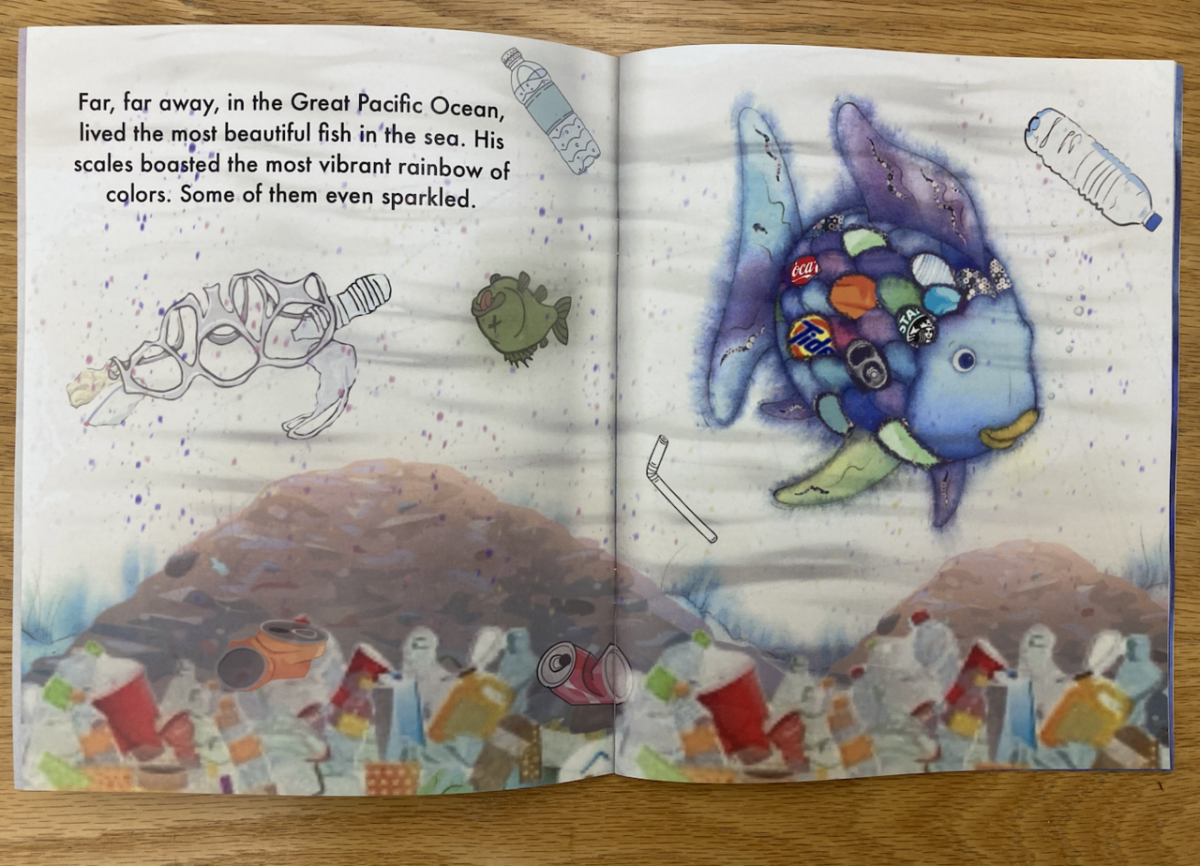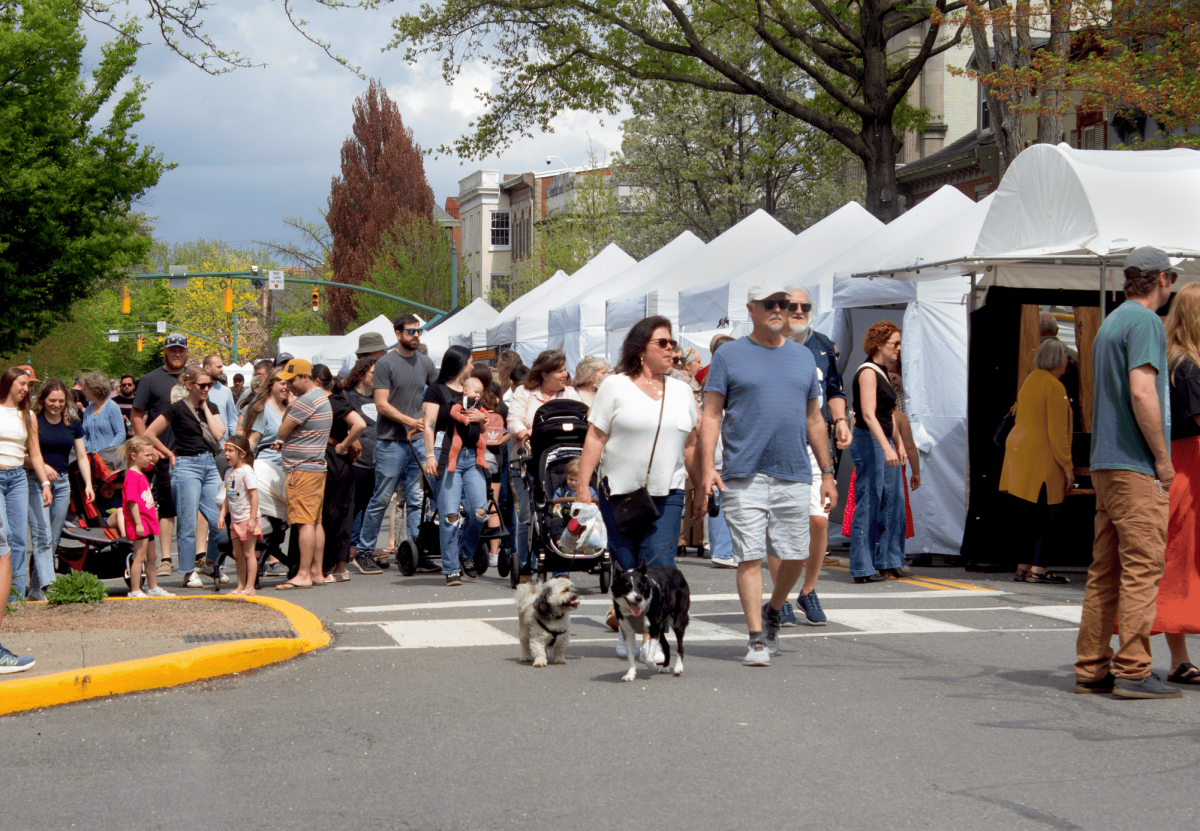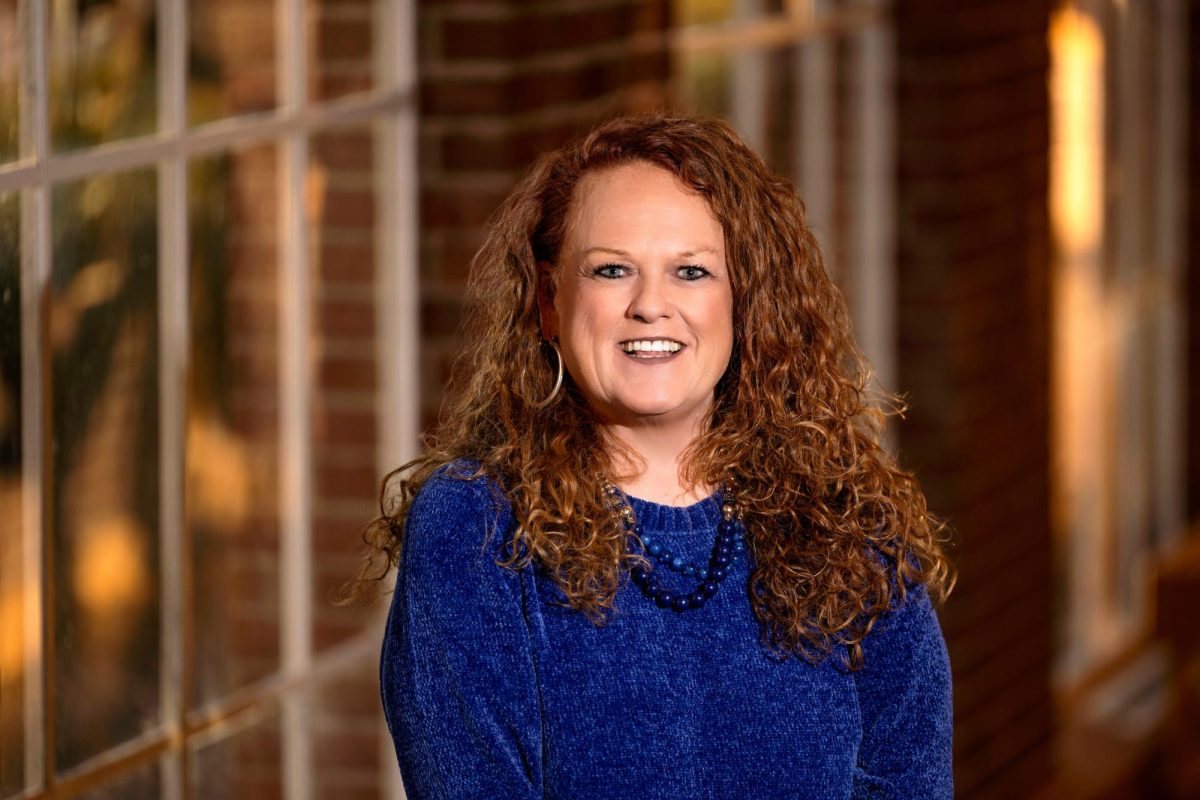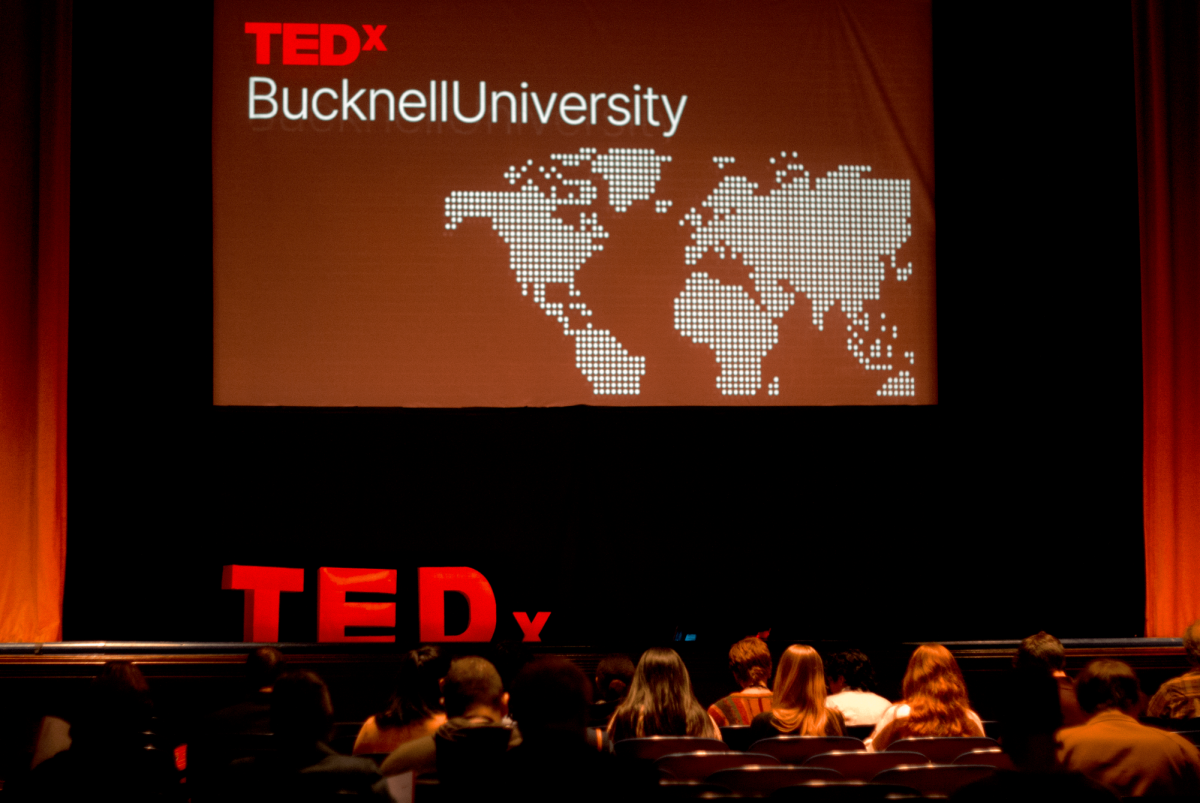When Jenna Kwiatkowski ’27, a biochemistry student, decided to enroll at Bucknell, she was excited about the opportunities in the sciences. “I wasn’t thinking of any of the other things, like arts,” she says, “I thought that’s just not for me.” Kwiatkowski signed up for the Society and Technology residential college specifically because of her connection to science.
During a Children’s Media unit of her foundation seminar “Climate Fiction,” Kwiatkowski found herself surprised after rewatching “Wall-E” in a new light. She enjoyed the movie as a child but hadn’t picked up on the environmental commentary framing the story. “I loved the idea of seeing movies and climate fiction that focused on younger audiences,” she says.
Jeremy Chow, Assistant Professor of English- Literary Studies, taught the seminar as an introduction for students interested in exploring what climate change is and how different types of media respond to it. He gave his students creative liberty with their final project, prompting Kwiatkowski to return to her experience with that children’s media unit.
Kwiatowski and her classmate, Elizabeth Saia ’27 decided to team up to recreate “Polar Bear, Polar Bear, What Do You Hear?” and “The Rainbow Fish” using climate change as a framing device.
The pair rewrote the texts to center the issues of extinction, pollution, and habitat destruction and used editing software to modify the pages in the original art style. In these versions the Rainbow Fish has an aluminum pop tab, a Tide detergent logo and Starbucks wrapper scales instead of metallic ones. And the polar bear can hear “an oil rig rumbling” in his ear.
“We tried to pick books that reminded us of our childhoods,” Kwiatkowski said. “I remember my mom reading ‘The Rainbow Fish’ to me.” As a result, the books have a dual audience—the young children for whom they are written and the adults who will remember them from their early childhood reading. “I liked seeing that I could watch ‘Wall-E’ again and get new meaning from it. These are our childhood books, and there is a shock factor when you realize something has changed.”
At the Residential College Symposium, faculty were impressed with Kwiatkowski and Saia’s work. They suggested sharing the books with their intended audience. With the help of faculty in the Departments of Education and History, Professor Chow contacted the Lewisburg Children’s Museum and helped the students collaborate with Bucknell Publications, Printing and Mail to obtain funding from the BHC to publish the books.
Months after the course ended, Kwiatkowski presented the storybooks at the Lewisburg Children’s Museum. On April 6th, she read “Rainbow Fish” aloud and conducted an art project with the school-age children. On April 25th, she will return to read the second work.
Kwiatkowski recognizes that the topics are heavy and that children won’t necessarily understand climate change through just one storybook. But, she didn’t want to erase the gravity of the situation just to make a “rainbows and sunshine” children’s story.
“If we’re going to fix this problem we need to start putting it into younger people’s minds,” she says. “I’m hoping these books will help get the conversation started, instead of ignoring it.”
Kwiatkowski intends to continue taking Humanities Classes during her time at Bucknell. “Going to that class was a relief. I got to work a different part of my mind and have these difficult discussions. Just seeing what other people think about it too, and hearing their opinions, allowed me to grow what I was thinking.”
Read more about the Humanities at Bucknell at @bucknell_humanities_center on Instagram.

























